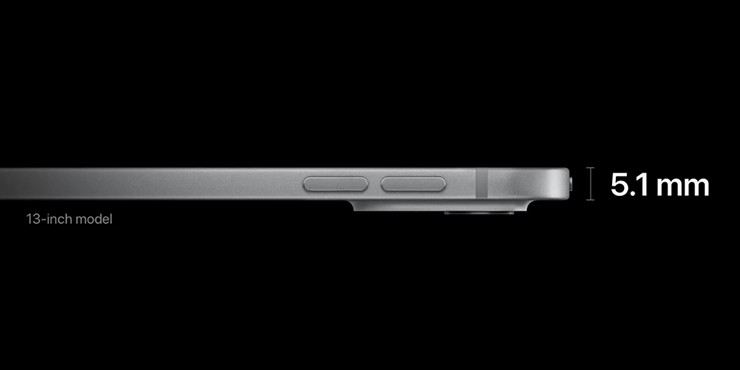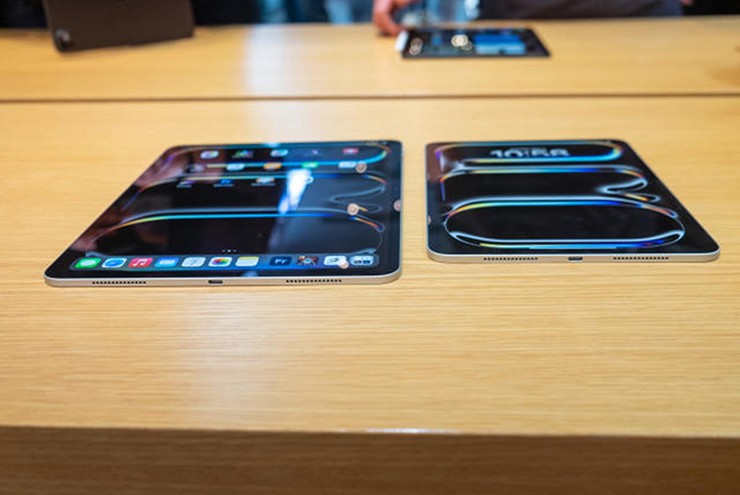Last week, Apple announced the all-new iPad Pro with the super-fast M4 chip and an OLED display brighter than anything the company has put into a tablet to date.
iPad Pro M4 is the best tablet Apple has ever produced. But more importantly, it is also the thinnest device Apple has ever created as the 11-inch model is 5.3mm thick, while the 13-inch model is even thinner at only 5.1mm thick.
iPad Pro M4 has a main thickness of 5.1 mm.
It's incredibly thin and makes the new iPad Pro even thinner than the iconic iPod nano. But when a company creates a product that thin, there's an obvious problem they need to solve: "How can you be sure that something like that won't bend in the middle?" like the Bendgate incident that Apple encountered with the iPhone 6 Plus in the past.
To address this concern, the head of hardware at Apple, John Ternus, explained to a YouTuber that Apple has redesigned the internals of the iPad Pro to try and ensure that it is as tough as possible. can. One of the changes includes a new metal shell that sits above the logic board and then runs down the middle of the tablet to form a sort of chassis. This rib then adds rigidity to a device that can bend.

The obsession with the Bendgate incident is something that many iPhone 6 Plus users still remember.
Back to the iPhone 6 Plus - the famous smartphone bent in the middle every time someone put it in their back pocket and then unfortunately sat down. Some recent iPad Pro models also have a bit of a curvature problem, although the degree of curvature is not like the iPhone 6 Plus.
After all, Apple is ready to solve the curvature problem on the iPad Pro M4 so users can rest assured, at least in theory.


